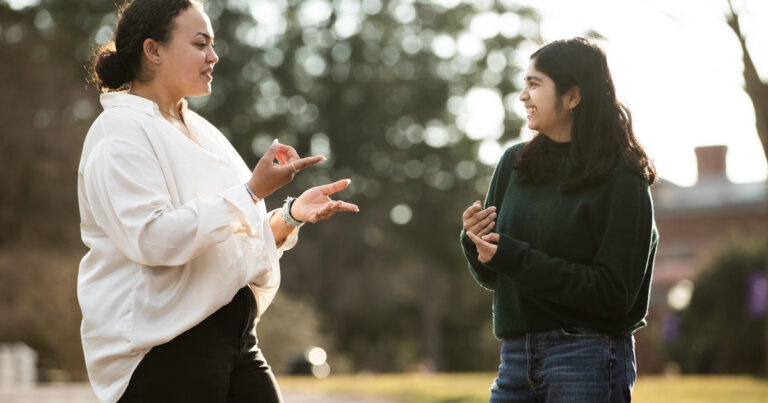“It's important that health care professionals and students are aware of this and can provide whatever they need to let patients know they are here,” she says.
Anderson and Alexander Wilkins, co-directors of DeafYES! Clark ensured a variety of perspectives from the deaf community, including Black, Indigenous, and people of color, and Chan, who is also a Deaf assistant professor of psychiatry at the University of Massachusetts. He appeared on the film as a consultant, actor, translator, cast, and crew member. They said that by working with the larger Deaf community, the team was able to create an authentic film that reflected their needs.
“That we were able to include everyone is a testament to the importance of community-engaged research. This reflects the power of collaboration with community members and how research can be leveraged. It speaks to how it can benefit the most people,” Wilkins said.
One of the important points highlighted in the video is that hearing-impaired patients should be provided with medical terminology and related content-specific information as soon as possible after they arrive for their appointment or arrive at the emergency department. This is the importance of having a knowledgeable interpreter. The decision whether the interpreter will be in-person or online should be based on the patient's preferences.
“Many people assume that one size fits all when it comes to interpreting,” Offutt Decker said. “Having a good interpreter should feel personal. You're sharing your personal health information. You can't see a doctor without an interpreter.”
Dominguez-Barnes said this process may be easier said than done, but making sure there are no communication barriers should be as routine as taking a patient's vitals. is recognized. “There is always an opportunity to learn how to be more equitable.”


